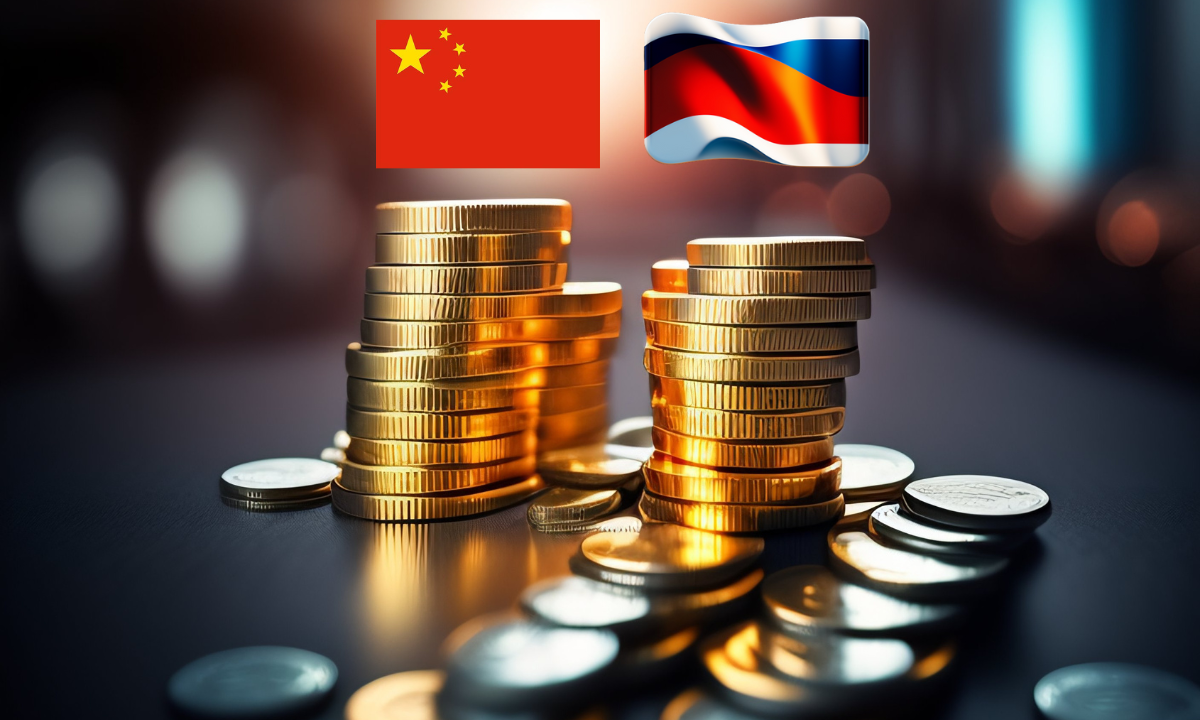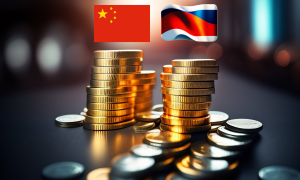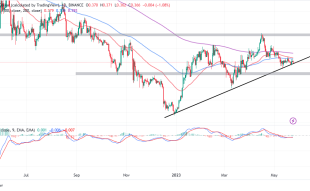Join Our Telegram channel to stay up to date on breaking news coverage
Igor Shuvalov, the chairman of Russia’s national economic development institution, VEB.RF, has urged China and Russia to expedite the establishment of an efficient payment system for BRICS and SCO members.
State-of-the-Art Payment System BRICS and SCO Currencies
Shuvalov, who previously served as First Deputy Prime Minister in Dmitry Medvedev’s Cabinet, emphasized the need to swiftly create a payment system that supports transactions in the Russian ruble, the Chinese yuan, and the currencies of SCO and BRICS member nations.
The chairman of VEB.RF has urged #China and #Russia to expedite the development of an innovative payment system for members of #SCO and #BRICS pic.twitter.com/buOcZjSEPr
— PRO BLOCKCHAIN (@PRO_BLOCKCHAIN) May 24, 2023
During the Russian-Chinese Business Forum in Shanghai, Shuvalov highlighted the importance of this system, given that the BRICS comprises Brazil, Russia, India, China, and South Africa, and the SCO is the largest regional organization globally, formed in 2001 as a political, economic, and defense alliance.
Shuvalov stated that trade and economic cooperation between Russia and China are expected to increase significantly, emphasizing the growing collaboration between his organization, the China Development Bank (CDB), and other financial institutions within the SCO and BRICS. He emphasized the significance of creating a new and advanced payment infrastructure to enhance trade and economic relations between the two countries.
A BRICS monetary, payment system is also being arrogantly dismissed by Americans despite very clear indications and have been since Ukraine invasion sanctions and even before, but it's serious.
China, Russia but also India have definitely chosen #gold in some form to back it up. pic.twitter.com/1Nh1xno9or— 🇪🇺 🇲🇨🇨🇭Dan Popescu 🇫🇷🇮🇹🇷🇴 (@PopescuCo) May 23, 2023
Shuvalov urged the Russian government and Chinese partners to take proactive steps, highlighting the importance of an independent and efficient payment infrastructure not only for the “ruble/yuan” pair but also for facilitating substantial transactions involving SCO and BRICS currencies.
On Tuesday, Russian Prime Minister Mikhail Mishustin stated that the relationship between Russia and China is becoming stronger. During a meeting with members of the Russian business community, Mishustin mentioned the Russian-Chinese Business Forum, noting the participation of more than 1,200 people, including representatives from various Russian companies, which he considered positive. Mishustin emphasized that the bond between Russia and China is growing stronger due to their historical ties, mutual respect, and friendship.
Russia Moves Towards the East to Pursue De-Dollarization and Alternative Financial System
Russia is moving toward the east to establish a more balanced world. It discusses de-dollarization and developing a new financial system independent of traditional powers.
A NEW TREND? 🤔
Russia's deputy prime minister says Russia could create an independent financial system with Islamic countries.
Reminder,
Within the framework of Sharia law, gold is characterized as a "Ribawi item," implying that Muslims cannot trade it for anticipated future… pic.twitter.com/pu2xidsI41
— Gold Telegraph ⚡ (@GoldTelegraph_) May 22, 2023
Russian Deputy Prime Minister Alexey Overchuk revealed that broad talks with the Islamic world covered these and other related matters during the Russia-Islamic World: KazanForum, an international economic forum. Overchuk emphasized that global shifts and trends, such as de-dollarization and establishing an autonomous financial system, influence Russia’s relations with Islamic countries.
Consequently, Russia aims to construct an alternative financial system that enables transactions with other nations without relying on SWIFT, the global banking network, or the U.S. dollar. This pursuit is driven by the G7’s intentions to further restrict Russia’s access to the existing financial system.
https://twitter.com/jehanzebnawaz/status/1660865592545656832?s=20
The talks between Russia and the Islamic states cover more than just the mentioned topics. They also focus on broader subjects like deglobalization and dealing with changing investment trends in the current geopolitical context. Overchuk believes these discussions will have a positive outcome because Russia and these countries face similar challenges. He stated that the future of relations between Russia and the Islamic states looks promising, and the Russian government is actively working towards further development.
Russia has recently strengthened its ties with Iran as part of these efforts. They have announced the construction of the Rasht-Astara railway, intended to serve as an alternative to the Suez Canal. This railway will connect India, Iran, Russia, Azerbaijan, and other countries in the Islamic world. It will span 162 kilometers.
More News
- Sharia Law And Bitcoins Fatwa
- FBI issues a warning on bogus job postings for cryptocurrency
- Cryptocurrency Hacks Show Decline and Changing Dynamics – Insights from TRM Labs
Join Our Telegram channel to stay up to date on breaking news coverage


